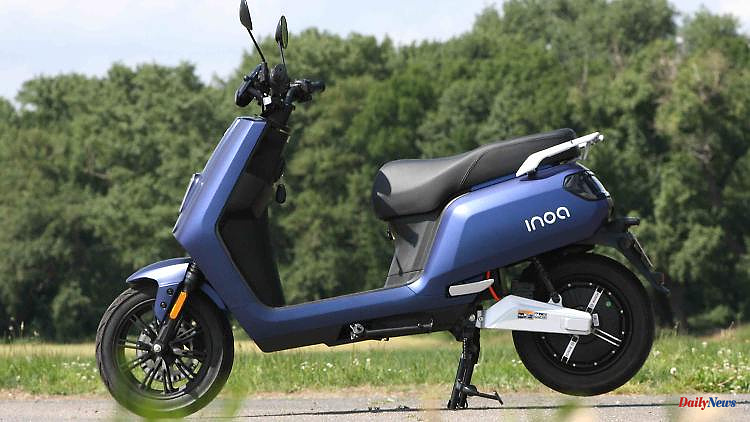In view of enormous price increases, mobility is increasingly expensive. Some people are looking around for alternatives to the car. The e-scooter is an environmentally friendly and particularly attractive option - also because of a bonus that is often not even noticed.
The great interest in the 9-euro ticket has also made clear the desire of many Germans for cheaper mobility and alternatives to the car. Both goals can also be achieved with an electric scooter. There are already many attractive and long-range 45 km/h models in the price window of 2,000 to 3,000 euros. The maintenance and energy costs are negligible compared to a car. In addition, thanks to the so-called GHG quota, annual savings of up to 350 euros have been possible since this year. In the long term, the investment in an environmentally friendly e-scooter could even pay for itself or even generate profits at some point.
So far, only cars and electric two-wheelers from the light motorcycle category have officially qualified for the GHG quota. But with a little trick, the compensatory payment can also be collected for mopeds. An insurance license plate is usually sufficient for a vehicle in this class to legally participate in public transport. However, you do not get a registration certificate part 1, which is a prerequisite for the application for the GHG quota.
Alternatively, however, it is possible to voluntarily register a moped. If you do that, you have to pay fees to the registration office, buy a license plate and pay a higher insurance rate. But because the additional investment adds up to only around 100 euros and the voluntarily approved e-scooter qualifies for a premium of well over 300 euros, there will probably be a profit of over 200 euros in the end. The plus will continue to increase in the following years, since the costs for the approval are one-off.
A 45 km/h scooter in the lower price segment that is currently in demand in Germany is, for example, the Inoa Sli5 50 from Nova Motors - a modern, uncomplicated and, thanks to the 3000 watt motor, also a fast everyday hero. In the basic version, this starts at around 2600 euros. Less the additional costs for vehicle registration, the GHG quota can save around 10 percent of the purchase price in the first year. In the years that follow, this proportion can even increase to as much as 15 percent annually. After seven years, the purchase of an Sli5 50 could theoretically become a zero-sum game.
From a financial point of view, an e-scooter, which is also comparatively environmentally and climate-friendly, is a real alternative to the popular 9-euro ticket. Of course, the e-scooter offers a much greater savings potential compared to an e-car. Even for a cheap Fiat 500e, minus the provisionally generous subsidy for the purchase of the innovation bonus, well over 20,000 euros are due. Instead of up to 15, only 1 to 2 percent of the purchase price can be saved annually through the GHG quota. An amortization scenario like that of the e-scooter becomes illusory here.
The abbreviation GHG stands for the so-called greenhouse gas reduction quota. It has existed for industry for some time and dictates to oil companies how many tonnes of greenhouse gases they may emit. If the value is exceeded, there are penalties, and anyone who falls below it can sell the superfluous pollution rights to competitors.
Originally, the industry was primarily supposed to trade pollution rights among themselves, but since this year private individuals have also been among the sellers. In principle, they receive the penalties from industry that would otherwise flow into the federal budget. However, the recipients of the money do not support the oil companies - they would have to pay the amount one way or another. But they get money that would otherwise be available to the community.
In order to be able to resell your GHG quota to a mineral oil company, you have to contact one of the now more than 40 intermediaries, such as car clubs, in Germany. These buy the GHG quotas from the e-vehicle owners, bundle them and then sell them to the oil companies. The intermediaries receive a fee for this, which is offset against the payment to the vehicle owner. If you agree on a fixed price, you currently receive around 250 euros, if you play poker and choose the future market price, you can get 400 or more euros paid out in the best case.












